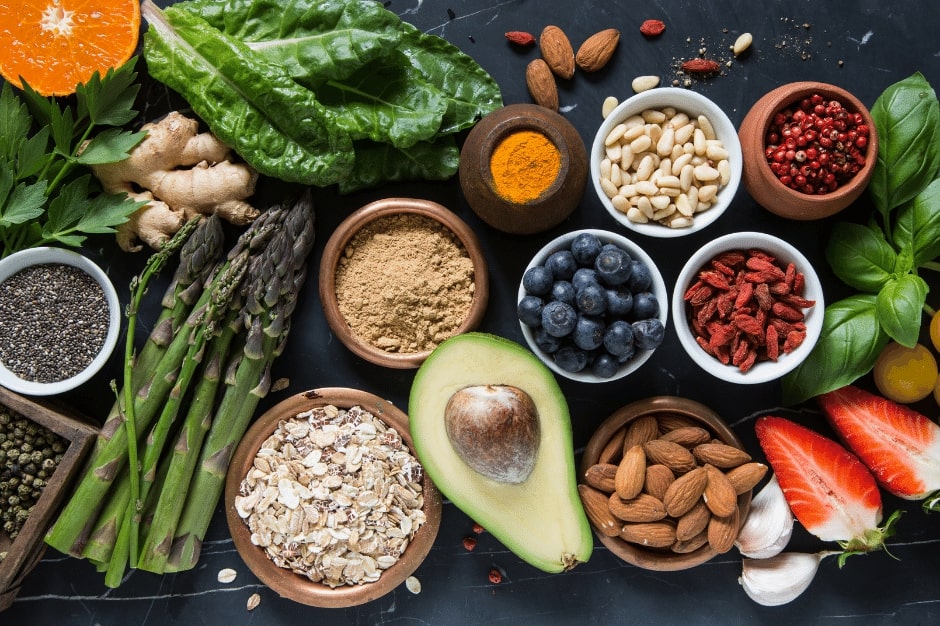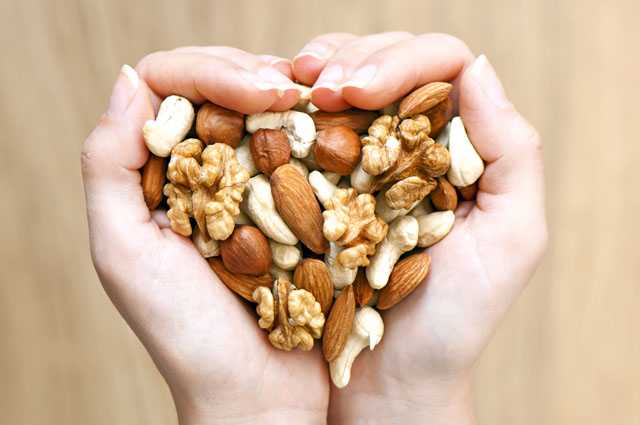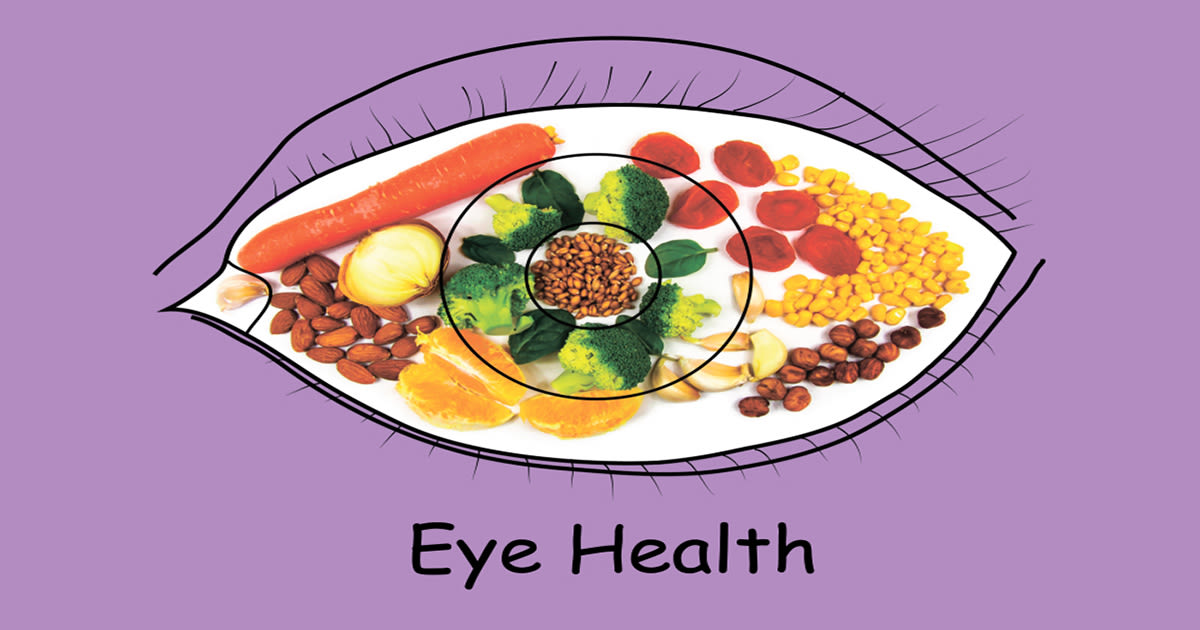Don’t make this mistake with your eyes it can darken your life, know about the 6 best foods for good eyesight. Our eyes are not only vital for vision but also play a crucial role in how we interact with the world around us. A healthy eye can help prevent common issues such as dryness, fatigue, and age-related conditions like macular degeneration and cataracts.
We are all aware of our body but how many are aware of the eyes? When we say body, we only mean hands, nose, ears, and feet but we forget that without eyes the world is blind. Just as we follow many rules to keep other parts of our body healthy, we have to follow some rules to keep our eyes healthy. Let’s know the method and some rules by which your eyes will be healthy and you will be able to see this world in a better way.

Table of Contents
Introduction
Healthy eyes are crucial for experiencing the world fully and enjoying everyday activities. Vision affects not just how we see but also how we interact with our surroundings, making eye health vital for overall well-being. Factors such as a balanced diet, regular eye examinations, and protective measures against environmental damage play significant roles in maintaining optimal vision. Understanding the importance of eye care and incorporating simple habits into our daily routines can help prevent common eye issues and ensure long-lasting eye health. Prioritizing eye care leads to a better quality of life and enhanced visual experiences.
Importance of Eye Health
Healthy eyes are vital for overall well-being and quality of life. Vision affects our ability to perform daily tasks, engage in social interactions, and enjoy activities like reading or watching movies. Unfortunately, many people overlook the importance of eye health, leading to conditions like dry eye syndrome, cataracts, and age-related macular degeneration (AMD). By adopting a comprehensive approach to eye care, including dietary changes, regular check-ups, and lifestyle adjustments, you can significantly reduce the risk of these issues.
6 Best Foods For Good Eyesight
1. The Eye Health Benefits of Carrots

Carrots are often hailed as a superfood for eye health, thanks to their rich content of beta-carotene. This antioxidant is converted into vitamin A in the body, a vital nutrient for maintaining good vision. Vitamin A helps produce rhodopsin, a pigment in the retina that enables us to see in low-light conditions. A deficiency in this nutrient can lead to night blindness and other vision issues.
In addition to beta-carotene, carrots also contain lutein and zeaxanthin, antioxidants that help protect the eyes from harmful light and reduce the risk of age-related macular degeneration. Including carrots in your diet can be easy and delicious—whether you enjoy them raw, steamed, or in salads.
By adding this vibrant vegetable to your meals, you not only enhance your dishes but also support your eye health for the long term. So, next time you reach for a snack, consider choosing a crunchy carrot!
2. The Eye Health Benefits of Spinach

Spinach is a powerhouse of nutrients that significantly contributes to eye health. Rich in antioxidants like lutein and zeaxanthin, this leafy green helps filter harmful blue light and protect the retina from damage. These antioxidants are particularly effective in reducing the risk of age-related macular degeneration and cataracts, two common vision problems.
Spinach is also a great source of vitamin A, essential for maintaining good vision and promoting overall eye function. Furthermore, it contains vitamin C, which supports blood vessel health in the eyes.
Incorporating spinach into your diet is simple and versatile. You can enjoy it in salads, smoothies, or cooked dishes. Whether fresh or sautéed, adding spinach to your meals not only boosts your nutrient intake but also enhances your eye health. So, consider making spinach a regular part of your diet to keep your eyes vibrant and healthy!
3. The Eye Health Benefits of Nuts

Nuts are a fantastic addition to your diet, particularly for promoting eye health. They are rich in essential nutrients like vitamin E, omega-3 fatty acids, and antioxidants, all of which play a crucial role in maintaining good vision. Vitamin E helps protect eye cells from oxidative stress, potentially reducing the risk of cataracts and age-related macular degeneration.
Walnuts, in particular, are high in omega-3 fatty acids, which are known to support retinal health and may help prevent dry eye syndrome. Almonds and hazelnuts are also excellent choices, providing a good dose of vitamin E and other beneficial compounds.
Incorporating a variety of nuts into your daily routine is easy. You can enjoy them as snacks, add them to salads, or include them in smoothies. By making nuts a regular part of your diet, you can boost your eye health while enjoying their delicious flavors and satisfying crunch!
4. The Eye Health Benefits of Lemon

Lemons are not only a refreshing fruit but also a valuable ally for eye health. Packed with vitamin C, lemons play a crucial role in protecting the eyes from oxidative stress and may lower the risk of cataracts and age-related macular degeneration. This powerful antioxidant helps maintain healthy blood vessels in the eyes, promoting overall vision health.
Additionally, lemons contain flavonoids, which have anti-inflammatory properties that can further benefit eye health. The citrus fruit also aids in the absorption of iron, which is essential for preventing anemia that can affect vision.
Incorporating lemons into your diet is simple and versatile. You can add fresh lemon juice to water, salads, or marinades, enhancing both flavor and nutrition. By including lemons in your meals, you not only enjoy their zesty taste but also support your eye health for a brighter future!
5. The Eye Health Benefits of Fish

Fish is widely recognized for its numerous health benefits, particularly for eye health. Rich in omega-3 fatty acids, especially DHA (docosahexaenoic acid), fish helps maintain the integrity of the retina and supports overall vision. Omega-3s are known to reduce the risk of age-related macular degeneration and dry eye syndrome.
Fatty fish like salmon, mackerel, and sardines are especially beneficial due to their high levels of these essential fats. In addition to omega-3s, fish also contains important vitamins, such as vitamin A, which is vital for good vision and night sight.
Incorporating fish into your diet is easy and delicious. You can enjoy it grilled, baked, or in salads. Regularly consuming fish not only enhances your meals but also provides significant support for your eye health, making it a smart choice for maintaining clear and vibrant vision.
6. The Eye Health Benefits of Egg

Fish is an excellent food choice for promoting eye health, thanks to its high content of omega-3 fatty acids, particularly DHA (docosahexaenoic acid). These healthy fats play a crucial role in maintaining the structure and function of the retina, which is essential for clear vision. Studies suggest that regular consumption of omega-3-rich fish can lower the risk of age-related macular degeneration and dry eye syndrome.
Fatty fish such as salmon, mackerel, and sardines are particularly beneficial, as they are packed with both omega-3s and essential nutrients like vitamin D and vitamin A. Vitamin A is vital for good vision and helps prevent night blindness.
Incorporating fish into your diet can be easy and enjoyable. Whether grilled, baked, or added to salads, fish offers a delicious way to support your eye health while enjoying its rich flavors. Regularly including fish in your meals can lead to lasting benefits for your vision.
Healthy Routine for Healthy Eyes

Maintaining a healthy routine is essential for protecting your eyesight and preventing various eye conditions. As our eyes play a crucial role in how we perceive the world, adopting specific practices can enhance our health and function. In this article, we will explore effective habits for eye care and highlight six nutrient-rich foods that can contribute to better vision.
Essential Habits for Eye Health
- Regular Eye Exams: Scheduling annual visits to an eye care professional is crucial. Comprehensive eye exams can detect problems early, allowing for timely treatment. These exams can identify conditions such as glaucoma, diabetic retinopathy, and AMD before they cause significant damage.
- Balanced Diet: A diet rich in specific nutrients is fundamental for maintaining eye health. Foods high in vitamins, antioxidants, and omega-3 fatty acids can help protect against eye diseases and promote overall well-being.
- Stay Hydrated: Proper hydration is essential for keeping your eyes moist. Drinking sufficient water throughout the day helps prevent dryness and discomfort, contributing to better eye health.
- Limit Screen Time: In our digital age, excessive screen time can lead to digital eye strain. To alleviate this, follow the 20-20-20 rule: every 20 minutes, take a break to look at something 20 feet away for at least 20 seconds.
- Wear Sunglasses: Protect your eyes from harmful UV rays by wearing sunglasses with UV protection when outdoors. This can help reduce the risk of cataracts and other eye issues related to sun exposure.
- Get Enough Sleep: Quality sleep is essential for overall health, including eye health. Aim for 7-8 hours of restorative sleep each night to allow your eyes to rest and recover from daily strain.
Nutrient-Rich Foods for Eye Health
Incorporating specific foods into your diet can significantly enhance your eye health. Below is a chart highlighting six foods that are particularly beneficial for your vision:
| Food | Nutrients | Benefits |
|---|---|---|
| Carrots | Beta-carotene, Vitamin A | Supports night vision and overall eye health. |
| Spinach | Lutein, Zeaxanthin, Vitamin C | Protects against cataracts and age-related macular degeneration (AMD). |
| Nuts | Vitamin E, Omega-3 fatty acids | Reduces the risk of cataracts and maintains eye tissue. |
| Lemon | Vitamin C, Antioxidants | Protects eye cells from damage and supports overall eye health. |
| Fish | Omega-3 fatty acids, Vitamin D | Promotes retinal health and helps reduce dry eyes. |
| Eggs | Lutein, Zeaxanthin, Zinc | Supports macular health and may lower the risk of AMD. |
Incorporating Eye-Friendly Foods into Your Diet
Incorporating these nutrient-rich foods into your daily meals is easier than you might think. Here are a few suggestions:
- Breakfast: the next time you prepare your breakfast, consider what you’re putting on your plate and how it will impact your day. Start your day with an omelet loaded with spinach and a side of fruit topped with a squeeze of lemon.
- Lunch: Enjoy a salad with mixed greens, grated carrots, and a handful of nuts, drizzled with lemon vinaigrette.
- Dinner: Grill or bake fish and serve it alongside steamed spinach and roasted vegetables.
- Snacks: Keep a variety of nuts on hand for a healthy snack option, or enjoy carrot sticks with hummus.
Conclusion
By adopting a healthy routine and focusing on eye-friendly foods, you can significantly enhance your eye health and reduce the risk of vision-related issues. Regular eye exams, a balanced diet rich in specific nutrients, proper hydration, and protective measures against environmental factors are all crucial components of maintaining healthy eyes.
Simple lifestyle changes can lead to significant long-term benefits, ensuring that your vision remains clear and vibrant for years to come. Prioritizing your eye health is not just about preventing disease; it’s about enriching your overall quality of life. So, start today by making informed choices that will support your eye health and well-being!

